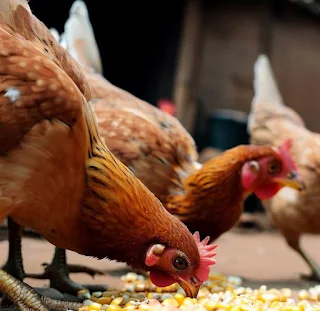Corn Can't Expect Justice from a Court Composed of Chickens
African Proverb: Corn Seeking Justice from a Court of Chickens - Unveiling the Inequality of Power and Fair Treatment.
The African proverb Corn can't expect justice from a court composed of chickens means that it is impossible to get a fair trial or treatment from those who have a vested interest in harming or exploiting you when there is a clear imbalance of power and interest between two parties, such as in business, law, politics, education, or media.
Corn Can't Expect Justice from a Court Composed of Chickens African Proverb.
To show the conflict between the oppressed and oppressors, the African proverb uses corn and chickens.
The African proverb uses the metaphor of corn and chickens to illustrate the power imbalance and conflict of interest that exists between the oppressed and the oppressors. The corn represents the victim, the one who is wronged or abused by the chickens, who represent the judges, the authorities, or the elites.
The chickens have no regard for the rights or dignity of the corn, they only care about satisfying their own hunger and greed. The proverb warns us that we should not trust or rely on those who have a history of injustice and corruption, because they will never give us a chance to defend ourselves or seek redress. The proverb also teaches that we should seek justice from a neutral and impartial source, one that is not influenced by bias or self-interest.
Those who have more authority or influence than us can abuse or manipulate us for their own benefit, and we should be aware of their hidden agendas and motives. They have also suggested that we should seek alternative sources of information or representation if possible and that we should stand up for our rights and interests, and resist or challenge those who try to exploit or harm us.
The African proverb has been used in various contexts to criticize the lack of accountability and transparency in some African governments and institutions. For example, some news sites have argued that African leaders who commit human rights violations should not be allowed to set up their own investigation committees or regional courts, because they would only cover up their crimes and protect themselves from prosecution.
They have also questioned the effectiveness and legitimacy of the African Union, which has been accused of being complicit or silent in the face of atrocities and conflicts in the continent. They have called for more international pressure and intervention to ensure that justice is served for the victims of oppression and violence.
The African proverb can also be applied to other situations where there is a clear imbalance of power and interest between two parties, such as in business, law, politics, education, or media. The proverb reminds us to be aware of the potential for abuse and manipulation by those who have more authority or influence than us and to seek alternative sources of information or representation if possible. The proverb also encourages us to stand up for our rights and interests and to resist or challenge those who try to exploit or harm us.
The African proverb reminds us to be vigilant and critical of those who claim to represent or judge us, especially if they have a history or tendency of injustice and corruption. It also encourages us to seek justice from a neutral and impartial source, one that is not influenced by bias or self-interest.
Corn can't expect justice from a court composed of chickens is a powerful expression of the need for fairness and integrity in any system or institution that affects our lives. It warns us of the dangers of trusting those who have a conflict of interest or a history of corruption, and it urges us to seek justice from a source that is unbiased and independent.
It also inspires us to stand up for our rights and interests, and to challenge those who try to harm or exploit us. The African proverb is relevant not only to Africa but to any situation where there is an imbalance of power and interest between two parties.







